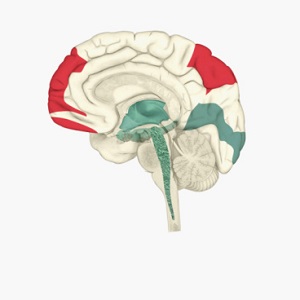Acetylcholine
 Acetylcholine is a neurotransmitter—a chemical messenger that helps carry signals across a nerve synapse. It was the first neurotransmitter to be discovered, and has been heavily studied. It is also the most abundant neurotransmitter and is present in both the central nervous system and peripheral nervous system.
Acetylcholine is a neurotransmitter—a chemical messenger that helps carry signals across a nerve synapse. It was the first neurotransmitter to be discovered, and has been heavily studied. It is also the most abundant neurotransmitter and is present in both the central nervous system and peripheral nervous system.
What Does Acetylcholine Do?
Acetylcholine serves both excitatory and inhibitory functions, which means it can both speed up and slow down nerve signals. In the central nervous system, its role is primarily excitatory. It plays a role in arousal, memory, learning, and neuroplasticity. It also helps to engage sensory functions upon waking, helps people sustain focus, and acts as part of the brain’s reward system. Acetylcholine helps maintain rapid eye movement (REM) sleep, the part of sleep during which people dream. In the peripheral nervous system, it helps with the contraction of cardiac, skeletal, and smooth muscles. Imbalances in acetylcholine can contribute to the development of myasthenia gravis, an autoimmune disorder that causes muscle weakness and fatigue.
Alzheimer’s and Parkinson’s Disease
The cholinergic portion of the brain is the area of the brain that produces acetylcholine. Damage to this portion of the brain is linked to the development of Alzheimer’s disease. Many people with Alzheimer’s disease have altered levels of acetylcholine. Cholinesterase inhibitors are commonly prescribed to people with Alzheimer’s disease in an effort to slow the development of the illness by preventing the breakdown of acetylcholine.
Acetylcholine also plays a role in Parkinson’s disease. Acetylcholine works together with the neurotransmitter dopamine to enable smooth movements. When there is an imbalance between acetylcholine and dopamine, movements can be shaky and uneven, a hallmark of Parkinson’s disease.
References:
- Alzheimer’s disease medication fact sheet. (n.d.). National Institute on Aging. Retrieved from http://www.nia.nih.gov/alzheimers/publication/alzheimers-disease-medications-fact-sheet
- American Psychological Association. APA Concise Dictionary of Psychology. Washington, DC: American Psychological Association, 2009. Print.
- Background to Parkinson’s Disease. (n.d.). Brown University Division of Biology and Medicine. Retrieved from http://biomed.brown.edu/Courses/BI108/BI108_1999_Groups/Neuroelectrodes_Team/background.html
- Colman, A. M. (2006). Oxford Dictionary of Psychology. New York, NY: Oxford University Press.
Last Updated: 08-4-2015
- 6 comments
- Leave a Comment
Jesse
January 21st, 2015 at 11:35 AMI don’t believe this
Janet Purcel
December 11th, 2016 at 6:04 PMI see a lot of my symptoms.
jay
February 26th, 2018 at 5:25 PMit does say it helps, not is directly causes such and such
Leave a Comment
By commenting you acknowledge acceptance of GoodTherapy.org's Terms and Conditions of Use.
